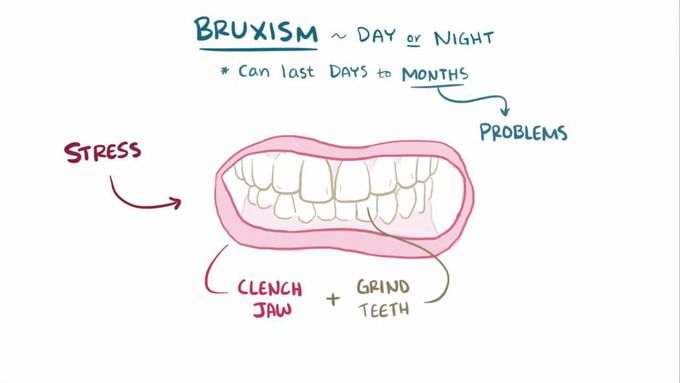


What are the types of bruxism?
Bruxism can happen when you’re awake or asleep. The grinding action is the same, but awake and asleep bruxism are considered two separate conditions: Awake bruxism: You clench your jaw and grind your teeth during the day with this condition. It’s usually tied to emotional issues. Feeling anxious, stressed or angry can lead to teeth grinding. But so can concentrating on something. Awake bruxism often doesn’t need treatment, if you’re more likely to notice and stop. Stress management can help and learning ways to become aware can also help reduce the frequency. Sleep bruxism: You grind your teeth while asleep with this form, which may cause more harm. You may not get the help you need since you’re unaware it is happening. Another challenge with sleep bruxism is that people don’t realize how strong they’re clenching their jaw and teeth. They can use up to 250 pounds of force, causing jaw pain and teeth problems. Clenching can also lead to headaches.

